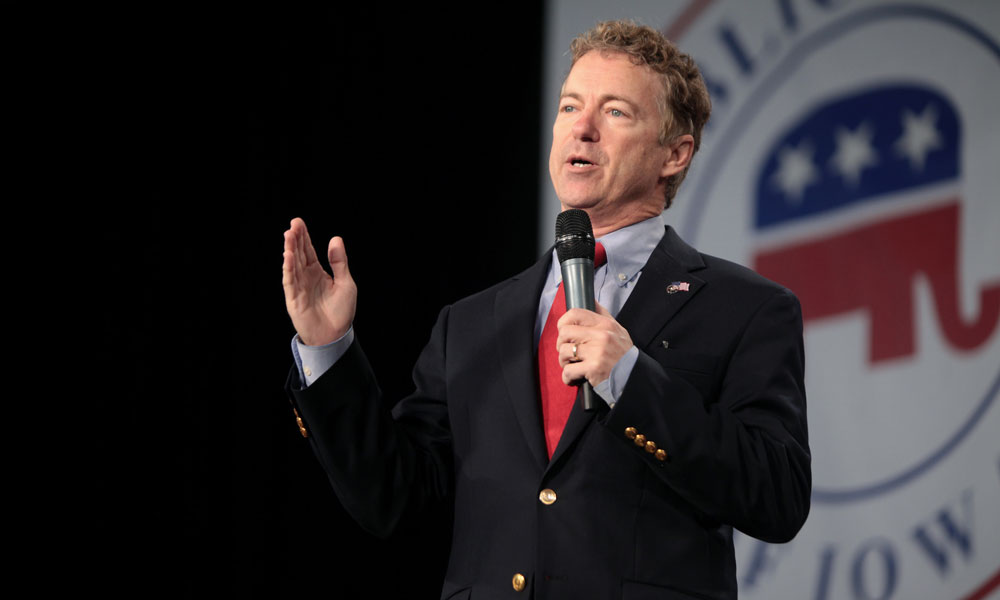
Travel Industry, Senators at Odds Over Visa Waivers
In the wake of last week's attacks in Paris, senators in both parties—most notably Republican presidential candidate Rand Paul—have used the opportunity to push for legislation that curtails the United States' visa waiver program. But the U.S. Travel Association says such an effort could cripple a successful industry.
In the wake of last week’s Paris attacks, senators in both parties—most notably Republican presidential candidate Rand Paul—have used the opportunity to push for legislation that curtails the United States’ visa-waiver program. But the U.S. Travel Association says such an effort could cripple a successful industry.
The security issues raised by the recent terror attacks in Europe are causing concerns among U.S. politicians, especially at the state level.
But the latest move by Sen. Rand Paul (R-KY), a presidential candidate, is bringing up a completely separate set of worries for the travel industry. On Monday, Paul introduced a bill that would suspend the issuance of visas to refugees from Syria and numerous other countries and would add a 30-day waiting period for all people looking to enter the U.S. The bill would also make it harder for French citizens to enter the United States. Paul touted the bill as another example of his strong border-security stance.
“It’s about time, and Paris should wake us up that we can’t just let anyone come to this country,” Paul said in comments on his bill, according to The Washington Post. “Forty percent of immigration issues in our country are from visa overstays, and for those visiting us from countries that have large jihadist movements, this will be a bone of contention.”
A separate bill from Sens. Jeff Flake (R-AZ) and Dianne Feinstein (D-CA), to be introduced Thursday, would boost security in a more limited sense by ending visa waivers for European travelers who have visited Iraq or Syria within the past five years.
While each bill would allow for exceptions in the case of the popular Global Entry program, travel groups have raised concerns about the legislation—which could disrupt the travel industry’s push for the expansion of the State Department’s Visa Waiver Program.
“It would be a grave error by Congress to scapegoat a successful program—without as much as a hearing—that had zero to do with a recent tragedy,” said Jonathan Grella, the U.S. Travel Association’s executive vice president for public affairs, in a statement. “On crucial matters of security above all others, Congress is obligated to be as clear-eyed and deliberative as possible, and not fall prey to the time-honored tradition of rushed, emotional overreactions.”
Grella added that the visa program, as it currently stands, helps with security in many ways as it encourages reciprocity with other countries, by leading other countries to create alliances with the United States.
“It also significantly bolsters travel to the U.S., which happens to be serious business that could easily go elsewhere,” he added.
Questions about the security risks the Visa Waiver Program creates aren’t new, nor are they limited to Paul. In recent days, many legislators have expressed concerns about the visa program’s weaknesses, suggesting they could create terror risks for the U.S.
“Were I in Europe already, and I wanted to go to the United States and I was not on a watch list or a no-fly list and I wanted to get there, the likelihood is I’d use the visa waiver program before I would try to pawn myself off as a refugee,” Sen. Richard M. Burr (R-NC), the chair of the Senate Intelligence Committee, said to Roll Call.
The fresh concerns about the waiver program could also hurt efforts to expand it to other countries such as Poland.
Sen. Rand Paul (R-KY), who introduced a new visa waiver bill this week. (Gage Skidmore/Flickr)






Comments